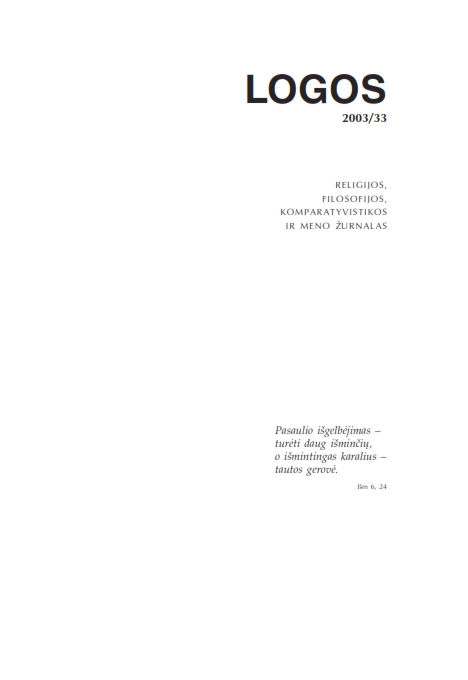Kategorinis imperatyvas ir kito veidas: Immanuelis Kantas, Emmanuelis Levinas
The Categorical Imperative and the Face of the Other: Immanuel Kant and Emmanuel Levinas
Author(s): Jūratė BaranovaSubject(s): Epistemology, Ethics / Practical Philosophy, Early Modern Philosophy, Contemporary Philosophy, Existentialism, Phenomenology
Published by: Visuomeninė organizacija »LOGOS«
Keywords: Kant; Levinas; categorical imperative; the Face of the Other;
Summary/Abstract: This article investigates the reception of kantian philosophy in the dialogical thinking of Emmanuel Levinas. Levinas did not pay as much attention to kantian thought as, for example, to Edmund Husserl’s phenomenology or to Martin Heidegger’s fundamental ontology, who were his mentors, challenging his acceptance and disagreement. On the other hand, Emmanuel Levinas, trying to state the status of ethics as the prime philosophy, discerned the only similar standpoint to his position in Kant’s approach. He accepted the idea of categorical imperative in trying to distance himself from the architectonics of kantian philosophy. The author of the article suggests that the common theoretical sources uniting Kant and Levinas are their openness to the tradition of Christian ethics, stemming in Kant’s case from its justification by reason and moral law, and in Levinas’ case reaching him through Fyodor Dostoyevsky’s approach of total self-rejection and consciousness of guilt. On the other hand, Levinas was more closed to the sober stability in a kantian understanding of the world than to the anxiety of existential tradition. Levinas relied more on rationalist tradition than on existential thinking. He took the idea of Infinity from Descartes. He interpreted life as the place for happiness. The most interesting thing is that for this assumption he looked for an ally in Kant as well. Nevertheless, the author of the article discerns different approaches to the problem of happiness in the philosophy of both.
Journal: LOGOS - A Journal of Religion, Philosophy, Comparative Cultural Studies and Art
- Issue Year: 2003
- Issue No: 33
- Page Range: 83-91
- Page Count: 9
- Language: Lithuanian

